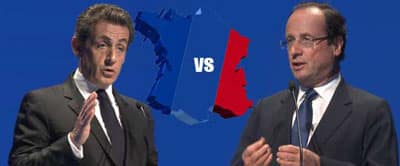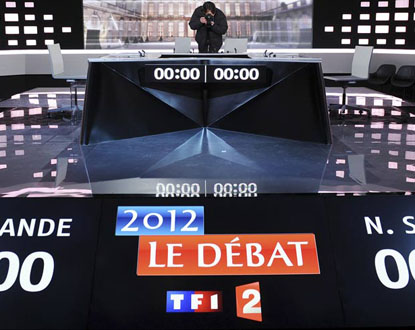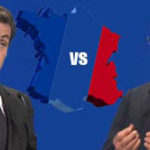This evening, the televised debate between the two candidates will be the last event of the 2012 presidential campaign. Then, beyond a few skirmishes, the outcome will be almost decided, and the decision will be left to the voters who, with their vote, will elect the new President of the Republic. Before this much-anticipated “match,” we offer a reflection that already projects beyond May 6th…

The significant mobilization of the electorate proves this interest and the French people’s aspiration to a return to politics.
However, one cannot help but be dismayed by the lack of “truth” in the candidates’ speeches, as they all have the annoying tendency to only say what pleases their voters. Yet, the President of the Republic, as envisioned by the designers of the Fifth Republic, should, to be a true statesman, know how to say what he truly thinks and not just what the voters wish to hear. At the risk, of course, of being disavowed, but this is undoubtedly what establishes the legitimacy of a “great” politician. However, in this campaign, it was clearly not the case, as the truly important subjects have been carefully avoided.
Nicolas Sarkozy ran a very poor campaign, punished by the weakest result for an incumbent president of the Fifth Republic. He could have emphasized his record, although very mixed, and his greater resilience than all other outgoing European leaders to the vicissitudes of the crisis that swept them all away (Spain, Italy, Greece, Netherlands, etc.). Consequently, facing the rise of the National Front (FN), he is forced to shift his already more than “borderline” discourse even further to the right instead of refocusing it towards Bayrou’s voters, as he initially planned.
François Hollande, promised victory, has been persistently saying as little as possible apart from a few symbolic and “media” announcements, and he has been flattering voters and the public spending he will struggle to finance. He is a bit too pleased with the incumbent president’s second-place finish in the first round, but the margin is small, and, in my opinion, he must now propose credible solutions to the crisis, even if it doesn’t please the voters. It is true that the pressure from the Left Front has eased with Mélenchon’s lower-than-expected score, which gives him a slightly less narrow margin of maneuver and more freedom to attract centrist voters whom he needs to prevail.
Let’s bet that whichever of François Hollande or Nicolas Sarkozy is elected president will have limited room for maneuver to implement the structural reforms we urgently need in a world that has changed so much.
Faced with the emerging continental powers (Brazil, India, China, Russia, etc.) that continue to rebalance the world in their favor, France must take its full place in a strong Europe, the only entity capable of resisting them. We undoubtedly have the means to do so.
However, the current French political system appears outdated and ill-suited to this modernity, the importance of new technologies, and the citizens’ aspiration to become involved in public affairs. It is urgently necessary: a major fiscal reform, the end of holding multiple offices (limiting mayors to two terms), the rehabilitation of representative democracy, more resources for justice, and the end of the monarchical drift of a president from whom everything (and anything) is expected, a government that governs, more power for the parliament…
In short, the task is immense…
Christian Depardieu
Editor-in-chief of the cultural magazine performArts



